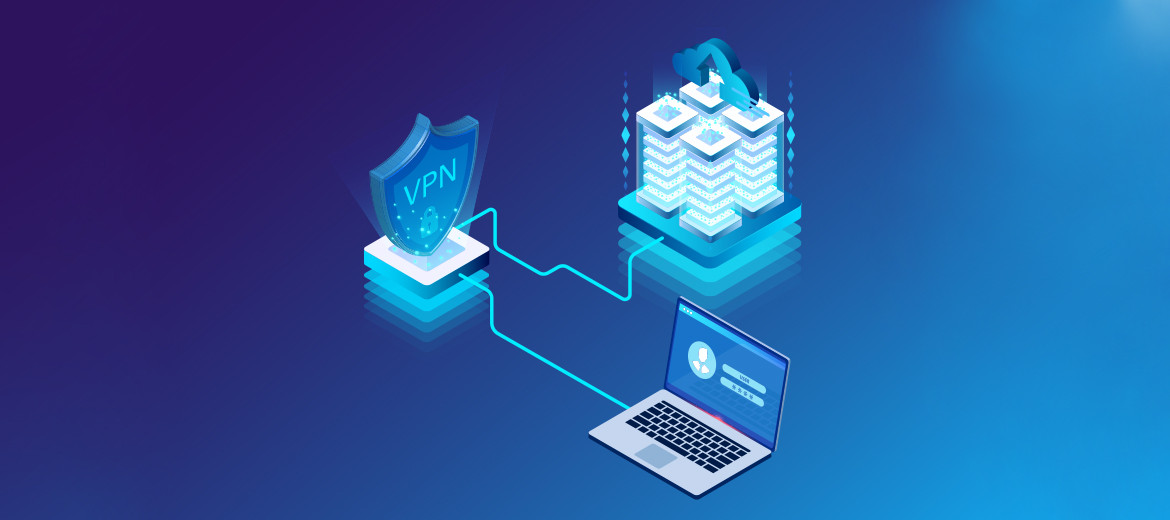In today's context, more and more companies are allowing employees to work remotely. Risk management is crucial for any business and it requires smart precautions to insure business continuity. The good news is that VPN increases security of web connections with very small costs compared to the negative effects of a cyber attack.
Phishing attacks, data espionage, hackers and cybercriminals are constantly trying to obtain credentials from users who connect without additional protections on various sources, to steal their identity, to access their online accounts to steal data, personal photos, access to protected systems that contain valuable information.
As more devices and services are exposed to the internet, the magnitude of the cyber attack risk for your network or your business and all devices connected to the network increases. A properly implemented VPN only allows access to secure devices and implements strict access controls, measures that drastically reduce the number of attack vectors available to a hacker to compromise network security.
The benefits of a VPN from NSHOST
You will enjoy secure web access. Once you have an active VPN, your internet connection is routed through the chosen VPN's private server rather than your Internet Service Provider (ISP), so when someone verifies your personal data following online access in any platform, the information it will receive comes from the VPN and not from the internet provider or device used.
Your personal data will be protected, and your server's IP will not be exposed online while you are browsing at least as fast as before. Connected to a VPN, you provide 2048 bit encryption protection - which is the most secure and fastest connection of its kind. With Bandwidth and the unlimited speed specific to our VPN packets, you can stream an HD video stream for example, you can surf the internet or download content at high speeds, even faster than non-VPN connections.
You will enjoy several simultaneous connections, which allows the use of a single account on several devices.
We secure and expand VPN services. The main purpose of a VPN is to provide secure access to a private network without being directly connected to the physical private network. Thus, a VPN extends all available services on the private network as if the devices were directly connected to that network, even if the device is actually only connected to the Internet.
For an employee in a company, this would mean access to IT network services using the Internet at home. The company's IT can provide services such as file servers, print servers, intranet websites, ERP systems, backup servers, etc. Connected directly to the internal private IT network, the user can use the same IT services that he used in the office, while connected to the VPN.
With VPN from NSHOST, you join our family. We protect each member of our family with the utmost seriousness, 24 hours a day, 365 days a year.
Our technical support team always has the necessary tools to help you in any situation. If our VPN service does not meet your standards, security requirements or internet connection speed, we will refund your money without any hidden fees, within a maximum of 30 days of the request. This ensures the guarantee of the services offered without any risk.
How does a VPN work?
Virtual Private Network is a secure virtual private network through which all your web accesses pass before they reach the desired destination. This increases security and protects personal data and online access to any other systems, the data being encrypted AES-256. There are several protocols for connecting to the VPN server: IPSec, L2TP, PPTP, openVPN, etc.
The simplest test is to write down your IP address before connecting to a VPN, searching google 'my ip': google.com/search?q=my+ip, then connect to the VPN server and reload the IP testing. You will notice a different IP address after successfully connecting to the VPN.
The IP (Internet Protocol) address is the unique number assigned to your router by your ISP. IP addresses are usually linked not only to the Internet service providers that assign them, but also to specific locations. If you want to find out more about the information you provide by simply accessing the website (without VPN protection) you can run the report: ipleak.com or dnsleak.com. After completing the test, the results should not show the name of the internet service provider.
In addition, any access is managed by your ISP, who can see which sites you are accessing, for how long, and can even store your hits for a period of time.
VPN services establish secure and encrypted connections to provide greater privacy than even when you connect to the Internet using a secure Wi-Fi hotspot. We can't consider connecting to an insecure WI-FI hotspot - hopefully no one does. Hackers can use Wi-Fi hotspots that mimic a legitimate hotspot in hopes of stealing credentials (login details) and other sensitive information from regular users. Using VPN encrypts end-to-end traffic by keeping all information private and making the user immune to the threat of dangerous Wi-Fi networks.


